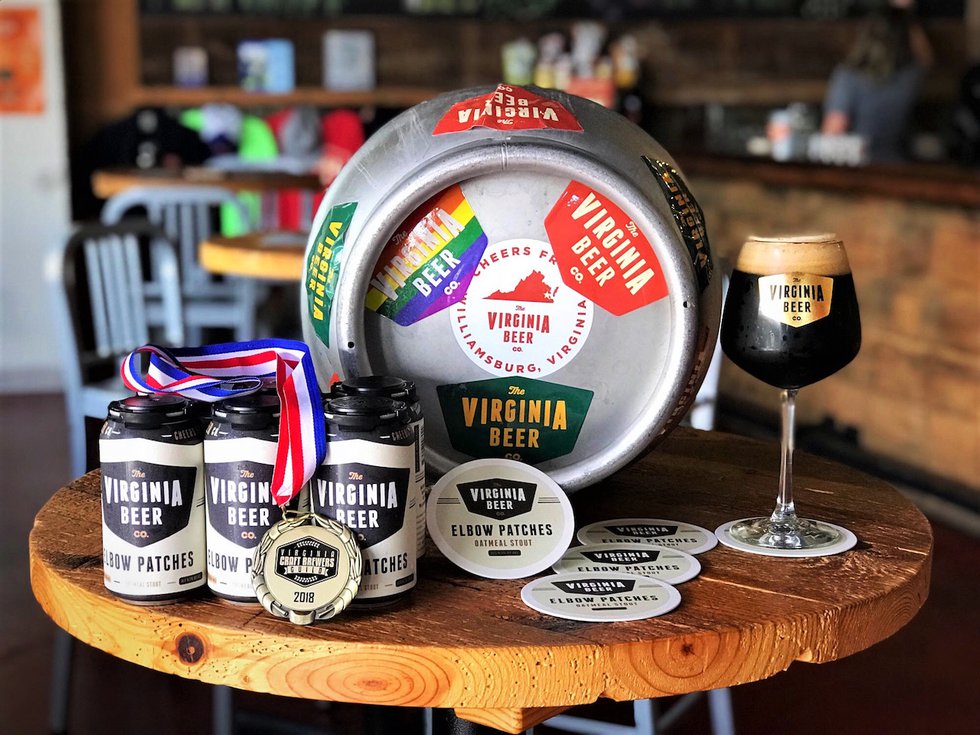
O’MY
O’MY! dairy-free cake batter gelato.
Check out these 7 healthy food trends for 2020—from meatless meat and alternative milks to “health halo” beverages and ancient elderberries.
Increased environmental awareness, new food technologies, and COVID-19 are fueling healthy food trends. Here are some of our favorites.

Tina Owens with Friendly City Food Co-Op.
Flexitarianism is “a sort of modified vegetarian diet. You might hear people say, ‘I’m going vegetarian or vegan one or two days per week.’ The rest of the days of the week, they’re incorporating some animal products,” says Jenn Lyons, a registered dietitian nutritionist and certified diabetes care and education specialist in Alexandria. Some turn to part-time vegetarianism for health reasons, while others “are becoming more environmentally conscious, so I think that is also driving some people to eat in a way that’s healthier for the planet,” she adds.
With brands such as the Beyond Burger and the Impossible Burger now being sold in places like Burger King and Costco, the meatless meat burger has gone mainstream. Unlike soy patties, the new plant-based products have a similar texture and taste to beef. “They’ve come miles and miles from where they used to be,” says Emma Langford, frozen buyer at Friendly City Food Co-op. The natural grocery store in Harrisonburg carries a variety of meatless meat burgers, including No Bull from Charlottesville (which “has a more plant-forward taste,” she notes).
“Health halo” beverages contain very low or even zero alcohol content—hence their angelic name. “There’s been a wave to wellness in our culture, and that’s where a lot of these products are coming from: How can we can still enjoy the things we like to enjoy but in a healthier way?” says Lyons. Health halo beverages provide “a great alternative for those who still want to enjoy the drink but without the buzz, maybe people who are designated drivers.”
Alcohol-free beers include O’Doul’s, Heineken 0.0, and Special Effects by Brooklyn Brewery. Hard seltzer, which is widely available at Virginia’s distilleries, is generally low in both alcohol and calories. Those who prefer nonalcoholic wines can reach for brands like Sutter Home Fre, Pierre Chavin Rose, and Ariel Cabernet Sauvignon. For low alcohol distilled spirits, look to Falls Church Distillers’ Frozen Falls Infusions.

Red Root & Co.’s elderberry syrup.
The tiny, deep purple elderberry has been used for centuries to treat infections, headaches, and constipation, and even to boost immunity. “Elderberry for us has always been a very popular supplement, but with the pandemic, elderberry sales just skyrocketed to the point that many companies weren’t able to keep up with their demand,” says Tina Owens, wellness team leader at Friendly City Food Co-op. “People were looking for ways to boost their immune system and stay healthy.” Lyons is not aware of any studies on the elderberry’s affects on viruses; however, like other berries, it is rich with antioxidants. “That can help with keeping down any kind of regular inflammation that your body might have,” she says.
Alternative sweeteners are on the rise. “I think with people trying the low carb diet, they’ve come out with a bunch of different sweeteners that are either low or no calorie,” says Friendly City’s Langford. Natural, plant-based sweeteners include stevia, monkfruit, and allulose. “One of my favorite uses for alternative sweeteners is in soda, and we carry a brand called Zevia.” There are even chocolate bars made with the new sweeteners—for instance, Lakanto uses monkfruit; Lily’s, stevia. “They’re still made with real cocoa powder, which adds a little bit of calorie content, but it’s not near what a regular chocolate bar would be,” says Langford.
Lyons says the new plant-based products seem to have fewer side effects and appear to be safer than previous sweeteners. “Alternative sweeteners are a great substitute for people who might be having a hard time eliminating sugar from their diet if it’s affecting their health, especially those who have diabetes,” she says.
According to Langdon, “Alternative milks are super popular right now.” The products derive from sources including almonds, coconuts, oats, soy, and even hemp. Most are lower in calories and fat than regular milk, she says.
Other alternative dairy products include cheeses; butters made from oatmeal, coconut oil, soy, and olive oil; and ice cream. “In the frozen section, I have a few nondairy ice creams. One is a local brand from Richmond, O’MY!, that’s a nondairy gelato made with coconut.”
Kept in plexiglass cases at Friendly City because of their cost, cannabidiol (CBD)-infused foods continue to sell well, says Owens. People choose CBD products for a variety of reasons. “I would say the top three are joint pain and inflammation, anxiety or sleep, and for pets,” says Owens.
Both Owens and Lyons recommend that consumers seek medical advice if they have any questions about supplements, especially if they are pregnant or taking prescription drugs. “With any type of herb or supplement, I always encourage my patients to first check with their doctor before they start taking it,” says Lyons. “Even though it’s a natural product, it still may interfere with the medicines that you’re currently taking.”
JennLyonsRDN.com, FriendlyCity.coop
This article originally appeared in our October 2020 issue.








